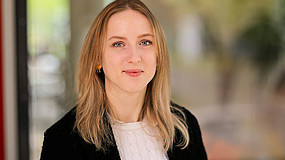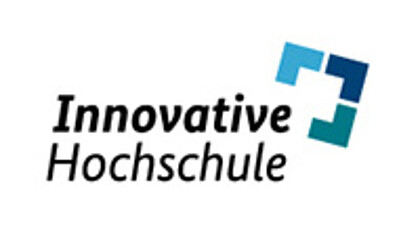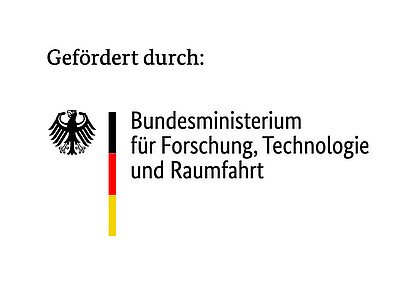More than 60 senior citizens and experts gather at an event on digital participation in old age to discuss opportunities, challenges, and practical approaches to using digital technologies.
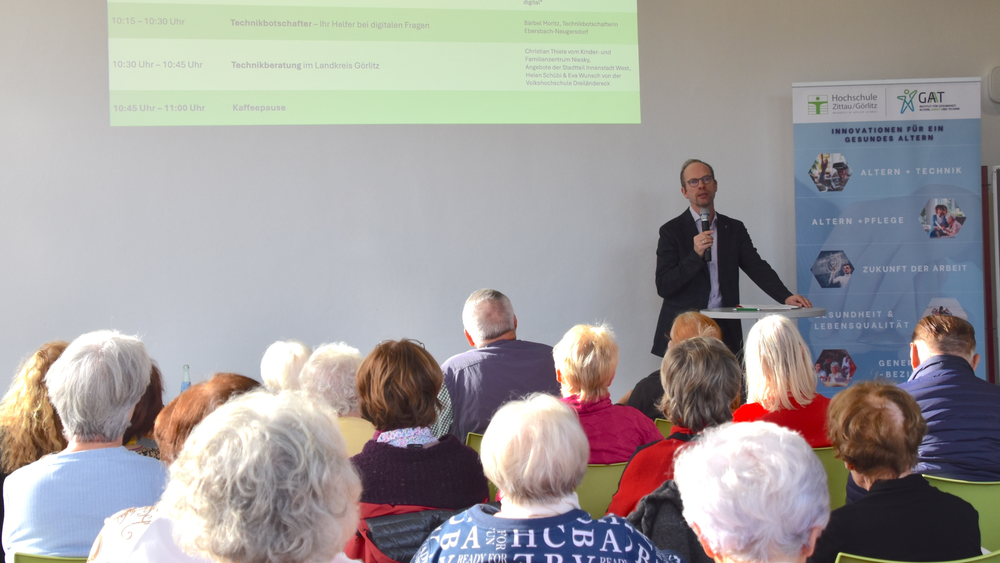
On October 28, 2025, an event focusing on digital participation in old age took place at the Zittau/Görlitz University of Applied Sciences. More than 60 senior citizens and experts from the fields of technology and media literacy, care, social work, science, and civil society came together to discuss opportunities, challenges, and practical approaches to dealing with digital technologies.
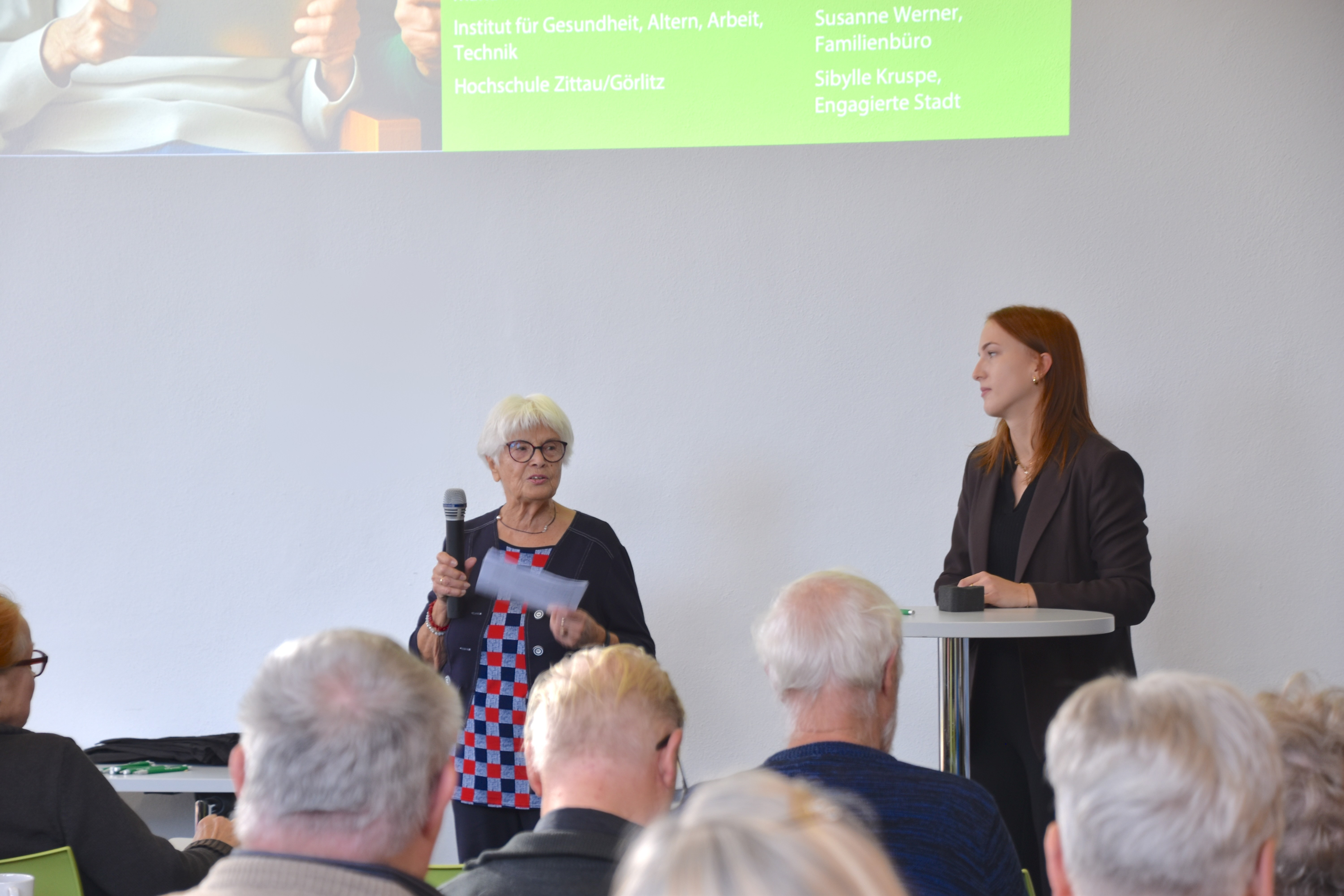
After a welcome by Maria Fabisch and Rose-Maria Zock from the Görlitz Senior Citizens' Association, Prof. Dr. Andreas Hoff, Director of the GAT Institute, opened the morning with a few words on the subject of loneliness. He emphasized that loneliness is not only an individual issue, but also a social one – and that technology, when used correctly, can help to promote social participation and build bridges between generations. Susanne Werner from the “Familienbüro Görlitz” and Sibylle Kruspe from Engagierte Stadt Görlitz then presented the results of their survey, which broke down the reasons for loneliness among senior citizens and at the same time revealed a great interest in low-threshold offers for dealing with technology.
In her keynote speech, Prof. Dr. Kristina Barczik, chairwoman of the board of the association „gemeinsam digital“, provided valuable insights into feelings of loneliness in old age, the potential of social media as a social anchor, and the challenges posed by the use of technology. Finally, she provided valuable insights into the work of her association “gemeinsam digital,” which illustrates how cooperation between local authorities, associations, and educational institutions can build bridges to the digital world. She emphasized that digital participation can be achieved above all through joint learning and mutual support.
Bärbel Moritz then reported on her work as a technology ambassador. She impressively demonstrated how volunteer work helps seniors get started with digital topics – whether it's setting up a smartphone, answering questions about online banking, or using social media. Christian Thiele from the “Kinder- und Familienzentrum Niesky” and Helen Schübi and Eva Wunsch from the “Digitales Leben” at the Dreiländereck Adult Education Center also presented the concept of technology consultation hours. These regular meetings offer a safe space where questions can be asked and devices can be tried out. Feedback showed that such formats contribute significantly to strengthening self-confidence and digital independence.
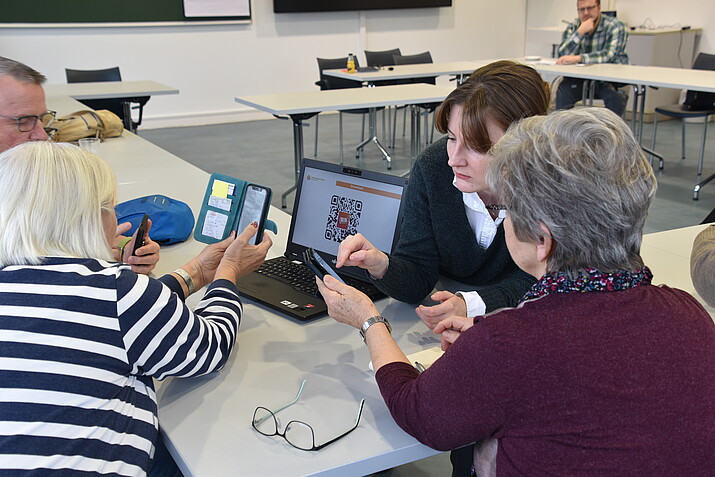
After a short coffee break, the second part of the event began with an interactive discovery session. Here, participants were able to learn about digital applications and try them out for themselves. Lisa Krüger from the Lausitz social network presented the Likewise app, which helps senior citizens make contacts and discover shared interests. Maria Fabisch from the Active-Assisted-Living Laboratory introduced the voice assistant Alexa and demonstrated how it can support older people in their everyday lives. The presentations made it clear that such applications can promote structure in everyday life and participation if they are tried out with openness and curiosity. It also became clear how important support in the use of digital technology is for older people.
Julian Saling from Zittau/Görlitz University of Applied Sciences presented interim results from the VATI6 research project, which investigates the use of technology in old age. Initial findings show that technology is particularly well accepted when it is perceived as relevant to everyday life and takes personal needs into account.
Thomas Graf (Zittau/Görlitz University of Applied Sciences) and Katharina Schneider (Catholic University of Applied Sciences Berlin) provided an outlook for the future with the presentation of the new Görlitz Practical Research Center. In the future, this center will work together with older people, caregivers, and other stakeholders to determine how technology can be designed in such a way that it enables genuine participation rather than exclusion.
During lunch, participants took the opportunity to discuss the projects presented and share their own experiences. It became clear that openness, mutual support, and good information services are crucial for technology to be perceived as an enrichment in old age.
The event impressively demonstrated that digital participation is not a question of age, but rather depends on accessibility, exchange, and trust—in line with the motto:
“So that technology does not divide, but connects, in old age.”
